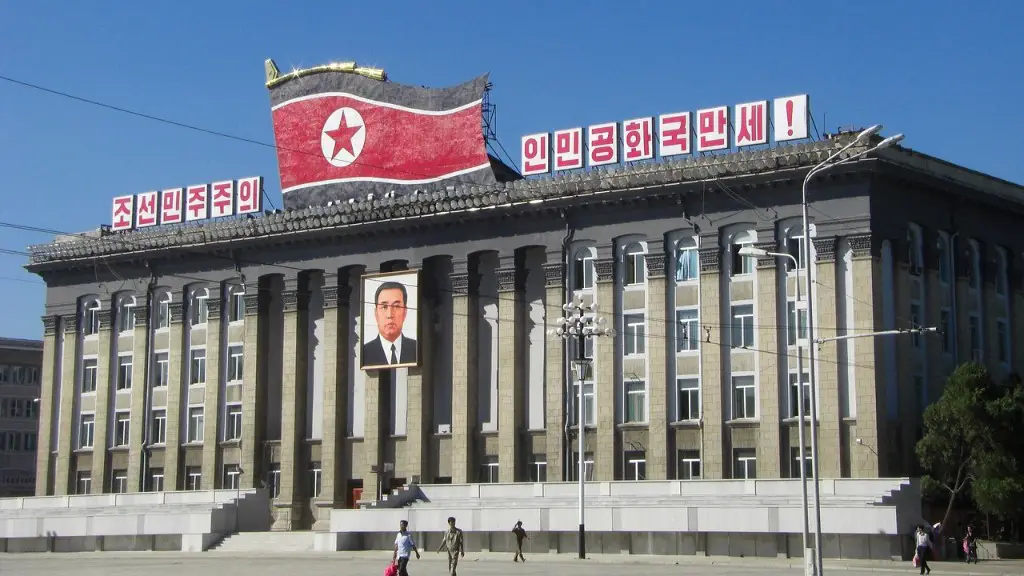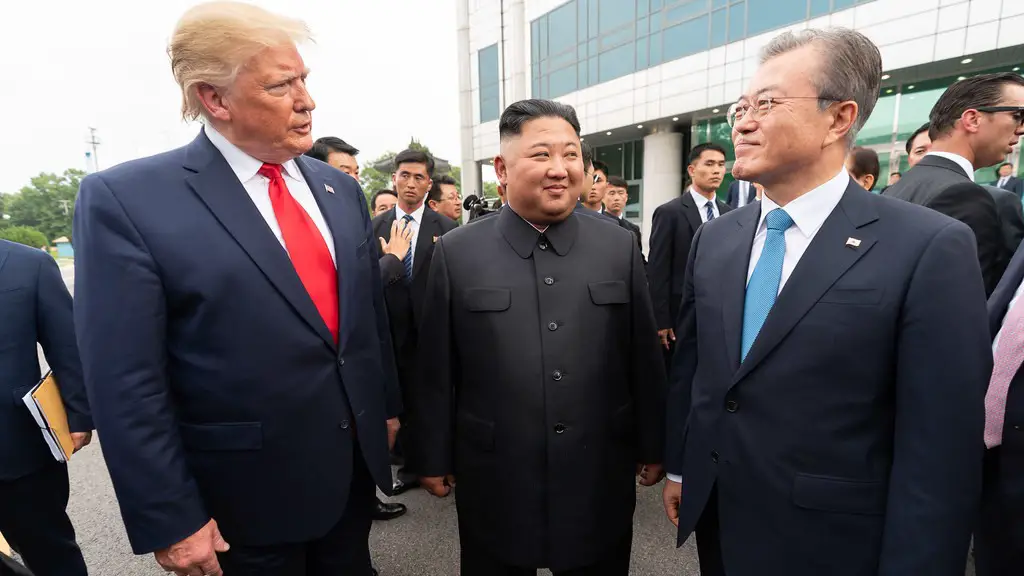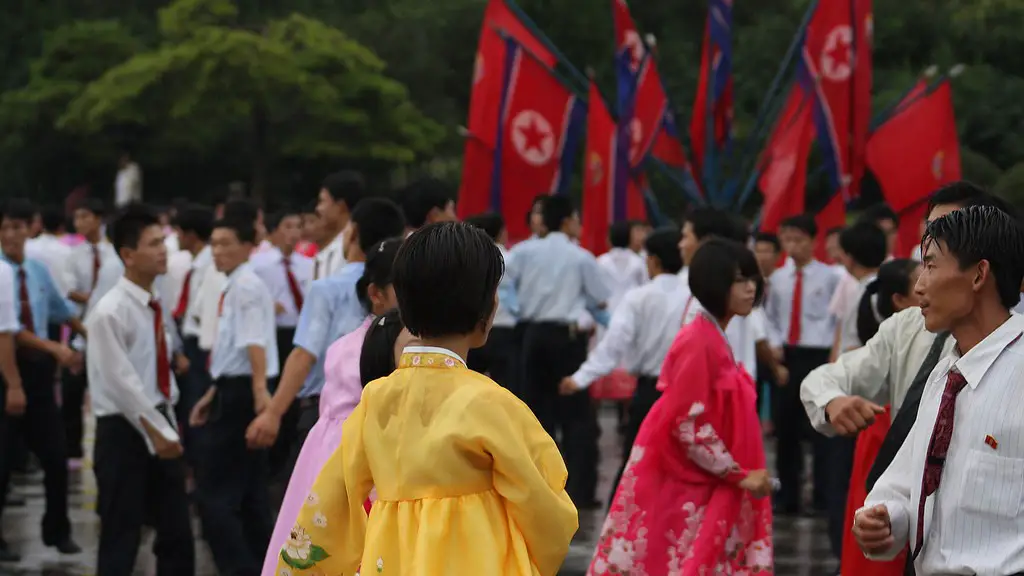Is Russia Going To Be Like North Korea
Russia is increasingly becoming more authoritarian, and the government is systematically attacking the political and economic rights of its citizens. This has prompted concerns among experts and ordinary citizens alike, that the country could soon be headed down the same road as North Korea. Understanding the similarities between the two countries, as well as looking at the differences, is necessary in order to gain an understanding of the potential course that Russia could take.
One similarity between Russia and North Korea is the reliance of both countries on centralised, authoritarian rule. In Russia, this manifests itself in the actions of President Vladimir Putin, who has become increasingly autocratic in his behaviour, as evidenced by his prolonged rule and his crackdown on political opponents. Similarly, North Korea is ruled by one family, who have controlled the country since the end of World War II. This has led to a highly restricted political environment in both countries.
Both countries also rely on state-controlled media to propagate their policies and ideas. Russia has seen a rising number of highly regulated media outlets, with all major news and entertainment outlets being under the control of the state. Furthermore, the government has been repeatedly worked to censor, ban, and control the type of content that is being shown. In North Korea, these restrictions are even more severe, with the media only being available to a small, select group of people. This has been used by the Regime to reinforce their messages and to keep the population in a constant state of fear and submission.
Russia has also embraced a very aggressive foreign policy, aimed at projecting its influence and power to its neighbours and the world at large. They have actively sought to undermine democracies and to support dictatorships, while also financing and aiding extremist groups in various parts of the world. Similarly, North Korea has also engaged in aggressive actions, with nuclear weapons tests being a regular occurrence. It is worrying to think that, given the current state of affairs in Russia, they could potentially escalate their actions and move towards the brink of war, as North Korea has done.
At the same time, there are some key differences between Russia and North Korea, which could mean that the country will not follow the same path as the latter. For one, Russia still has some degree of respect for the rule of law, and is formally a part of many international organisations, such as the United Nations, G20, and Council of Europe. This means that, should Russia take a more authoritarian stance, there are mechanisms in place that can help to mitigate the worst excesses of the government. Furthermore, there are also more avenues for citizens to express their discontent, such as via protests and strikes, than there are in North Korea.
Political Freedoms in Russia
Russia may be heading in a more authoritarian direction, but it still has more freedoms than North Korea. For one, the country has a democratic system that allows citizens to elect a President every six years. The system has also been further enhanced through the introduction of regional governors in certain regions, which gives locals more power over their lives. Similarly, there are also more civic freedoms with regards to speech and the press, with certain restrictions in place, such as those on the media, but the scale of oppression is nothing like that in North Korea.
Furthermore, there is also a greater degree of economic freedoms, with citizens allowed to pursue their chosen career. This is in stark contrast to North Korea, where the only career options are to work for the state or the military. Moreover, although there is some degree of censorship, it is nowhere near as pervasive as in North Korea, with citizens generally able to access an array of news sources, both in and outside the country.
The government has also been fairly open to allowing foreign investment and is actively seeking to improve its economy. This is again something absent from North Korea, where the government is actively opposed to the idea of foreign investment, preferring to retain control over the economy. This is again beneficial for the citizens of Russia, who have more options for employment and investment, compared with those in North Korea.
Finally, Russia remains a member of various international organisations and has engaged in diplomatic activities, with many of its leaders travelling abroad to meet with other world leaders. This is something that is mostly not feasible in North Korea, and as such it remains an important part of distinguishing between the two countries.
The Future of Russia
At present, it is difficult to predict the future of Russia. It is unclear whether the country will continue on its current course and become more autocratic, or whether the current trajectory will be altered, and the country will move back towards more democratic principles. Certainly, there is plenty of evidence that suggests that the former is more likely, at least in the short term.
Nevertheless, it is important to remember that, although there are many similarities, there are also some key differences which could prevent the country from descending into a situation similar to North Korea. Chief among these is the presence of international organisations and the ability to engage in diplomatic activities. This suggests that, even if the country does move towards a more authoritarian stance, it is unlikely to become as oppressive as North Korea.
In conclusion, it is uncertain whether or not Russia will become like North Korea. It is clear that, if the current trajectory continues, the country will continue to become more authoritarian and oppressive. However, the presence of international organisations and diplomatic activities may be enough to keep the situation from becoming too extreme.
Popular Opinion in Russia
When considering the future of Russia, popular opinion is an important factor to consider. In general, the people of Russia appear to be divided on the issue. On the one hand, there is a certain degree of support for Putin and his policies, as evidenced by his refusal to step down. On the other, there is growing discontent amongst certain segments of society, such as the younger generation, who are seeking greater freedom and reform. This split in opinion is indicative of the complexity surrounding the issue.
With regards to the comparison between Russia and North Korea, public opinion is mostly negative. There is widespread fear of the country becoming as oppressive as North Korea, and many are concerned that they are headed in that direction. That said, there is still some optimism amongst the populace, with many believing that the government will not be able to impose such draconian measures, given the presence of international organisations and the fact that many countries are wary of Russian behaviour.
In terms of what people want for the future, the opinion is once again divided. Some would like to see political and economic reform that would make the country more open and democratic. Others would like to see a more authoritarian stance, believing that this would bring about a much needed degree of stability. Ultimately, the future of Russia will depend on the decision made by the government, and how this will be received by the populace.
Economic Issues in Russia
Thoughts on the future of Russia also have to take into account its current economic situation. Though the economy picked up in the mid-2000s, the last few years have seen this growth stagnate. This has been caused by a combination of oil prices dropping and international sanctions, both of which have harmed the Russian government. This has led to a general feeling of discontent amongst the population, as can be seen in the growing protests and strikes.
This poor economic situation is often cited as a reason why the country could potentially become more authoritarian in future. In such a situation, the government could potentially move against its citizens, in order to control dissent. This is a factor that serves to make the comparison to North Korea seem more real; its economy is in even worse shape than Russia’s, and the government has used it as an excuse to crackdown on the population.
At the same time, there are still measures in place that could prevent Russia from heading down the same path as North Korea. For one, the country still has a relatively strong economic base, and the government has still enough resources to invest in its people. This means that, if the government is willing, it could potentially implement reforms and measures to improve the economy, which could potentially be beneficial for the populace.
Furthermore, the sanctions imposed by the international community have had a large effect on the Russian economy. It is possible that, should these sanctions be lifted, the economy could once again begin to grow, thus relieving some of the pressure felt by the population. This could potentially lead to more freedoms being given to the people, as seen in other countries, thus making a North Korea-style approach to government much less likely.
Russian Engagement With the World
Finally, it is also important to consider how Russia has interacted with the rest of the world in recent years. Though the country has become more authoritarian, it has not become completely isolated, as has been the case in North Korea. Russia has still engaged in diplomatic activities, with leaders travelling to other countries in order to meet with other world leaders, and the country is still part of international organisations, in particular the United Nations and the Council of Europe.
This is an important factor in understanding the future of the country. It could potentially mean that, even if the country does head towards a more authoritarian direction, there will still be ways in which the government’s actions can be mitigated. This is because of the fact that, in many cases, the international community will be more willing to intervene in Russia than it would in North Korea, given the presence of international organisations and diplomatic ties.
Moreover, it is also important to note that Russia is still part of the G20, meaning that it is still subject to certain economic regulations imposed by this organisation. This potentially serves to offer some level of protection to the economy from future authoritarianism, as any drastic moves made by the government could be challenged and overturned by the G20. This again serves to distinguish Russia from North Korea, where the country is not subject to the same regulations.
In conclusion, the comparison between Russia and North Korea is an interesting one. Though there are many similarities, there are also significant differences, which serve to (distinguish clearly between the two. From the state of popular opinion, to the presence of international organisations, to the state of the economy, there are elements which call into question whether or not Russia could continue down a similar path as North Korea. Ultimately, only time will tell.





